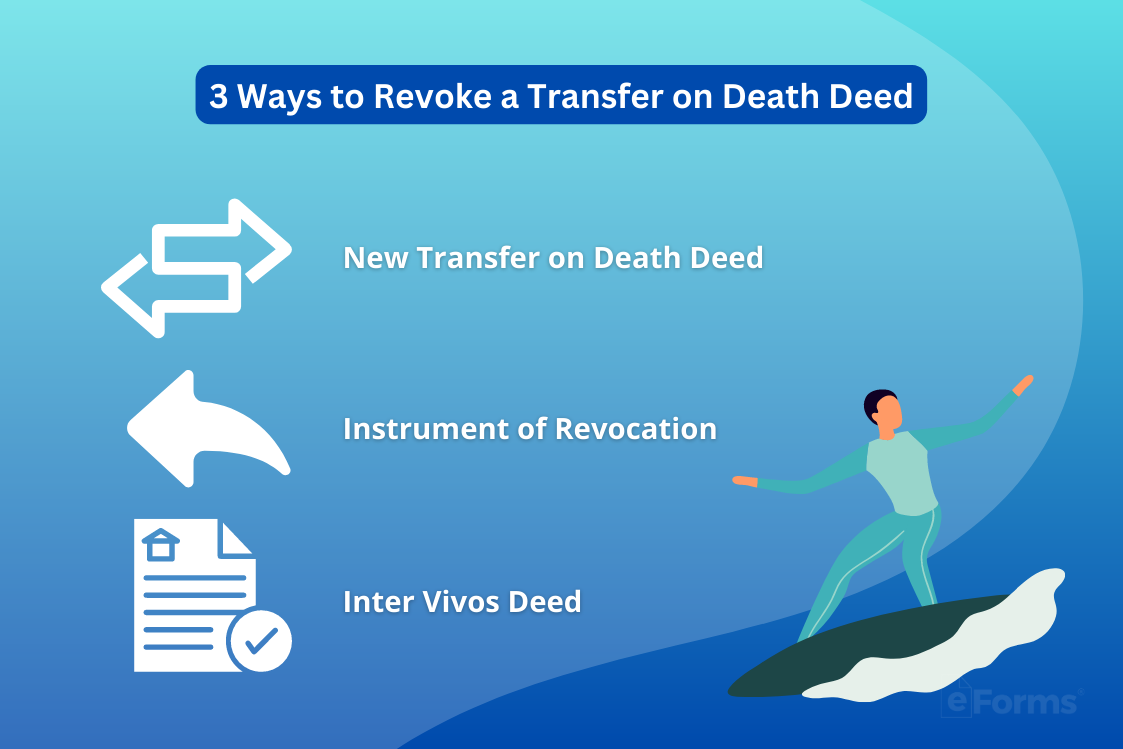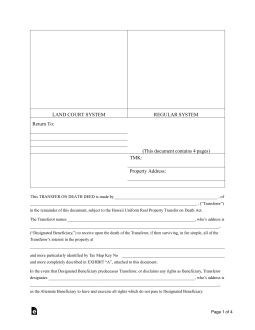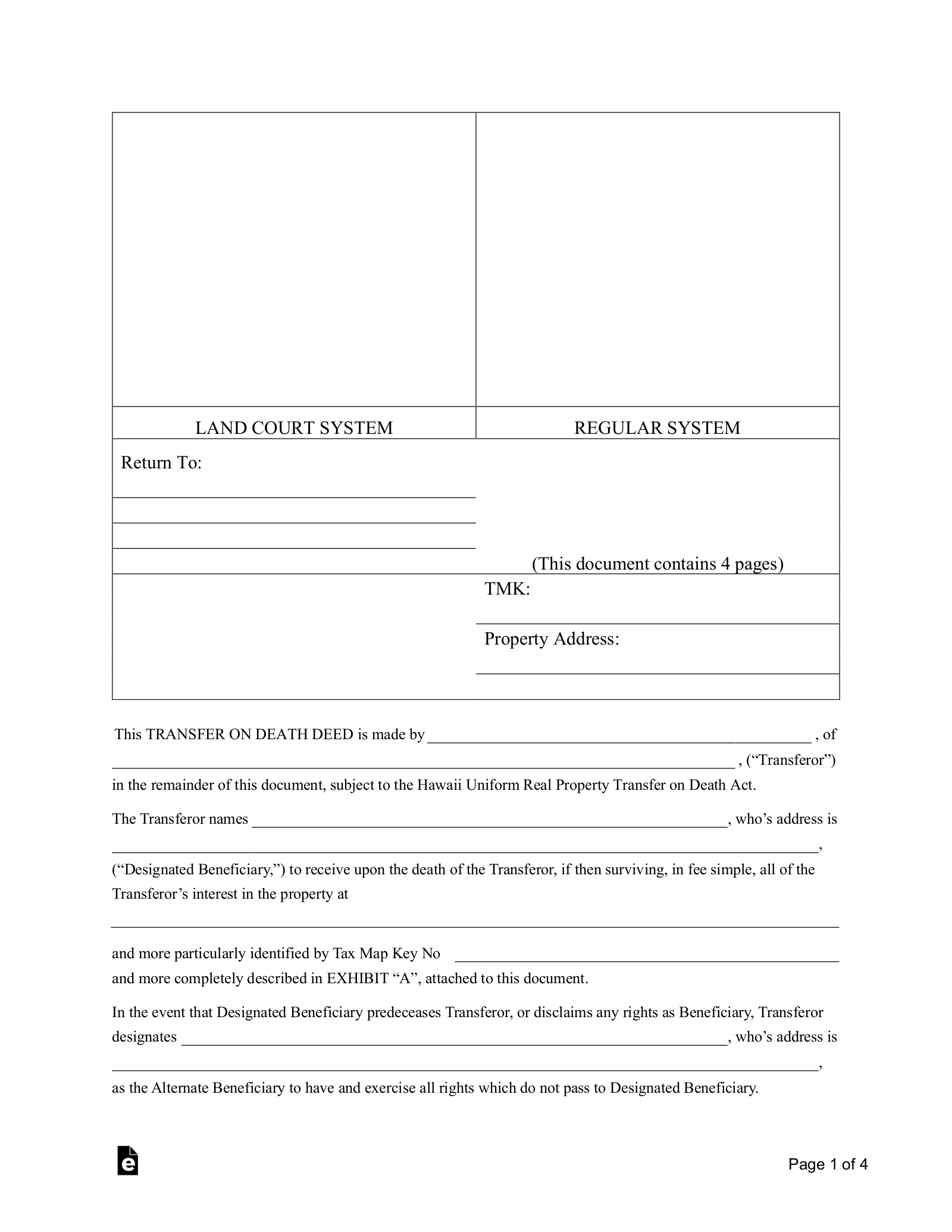Updated December 10, 2023
A Hawaii transfer on death deed, or TOD deed for short, is an instrument for transferring property to a beneficiary without probate. In Hawaii, this document must be recorded with the Hawaii Bureau of Conveyances before the grantor’s death to be valid. It can be revoked at any time.
Table of Contents |
Requirements
- Notary: Required (§ 502-41)
- Recording: Must be recorded with the Hawaii Bureau of Conveyances prior to the grantor’s death (§ 527-9).
- Witnesses: Not required
Legal Description
A legal description delineates the exact location and boundaries of the real property. This written statement may offer details such as distance from specific landmarks, latitude and longitude lines, and the specific lot number within a subdivision.
To find a legal description, reference property tax statements or the current deed. The county recorder’s office can also locate this information.
Example
“The southeast corner of Section 1, Township 20, Range 5, Hawaii County, Hawaii.”
Revocation

After being recorded, the TOD deed can be revoked using one of the following documents (§ 527-11):
- A transfer on death deed that revokes the previous deed
- An instrument of revocation that expressly revokes all or part of the previous transfer on death deed
- An inter vivos deed that expressly revokes the transfer on death deed
To be valid, the document used to revoke the transfer on death deed must be acknowledged and recorded by the Hawaii Bureau of Conveyances before the property owner’s death.
Where to Record
In Hawaii, a transfer on death deed is only valid if it is acknowledged and recorded by the Hawaii Bureau of Conveyances before the transferor’s death.
Hawaii, unlike other states, has two separate recording systems for real property: The Regular System and the Land Court System. Although the Bureau of Conveyances maintains both systems, it keeps the records for the two systems separate. Because a property lot may contain some land from each system, correct formatting of a transfer on death deed is essential to ensure proper recording.


